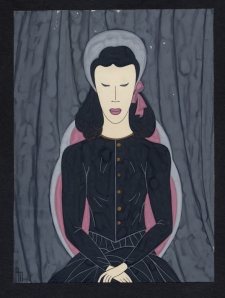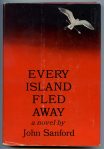Here at the BTC Blog we have decided to avoid the usual pitfalls of most New Year’s resolutions by focusing our attention not on petty goals like working out and eating healthy, but instead on spending more time with those closest to our hearts, our latest acquisitions. First up is a previously unknown 1856 broadside poem from B.D. Bozoth, a teacher from Fislerville (now Clayton), New Jersey, apparently intended to be sung to a specified devotional hymn and priced “Three Cents” in type at the bottom.
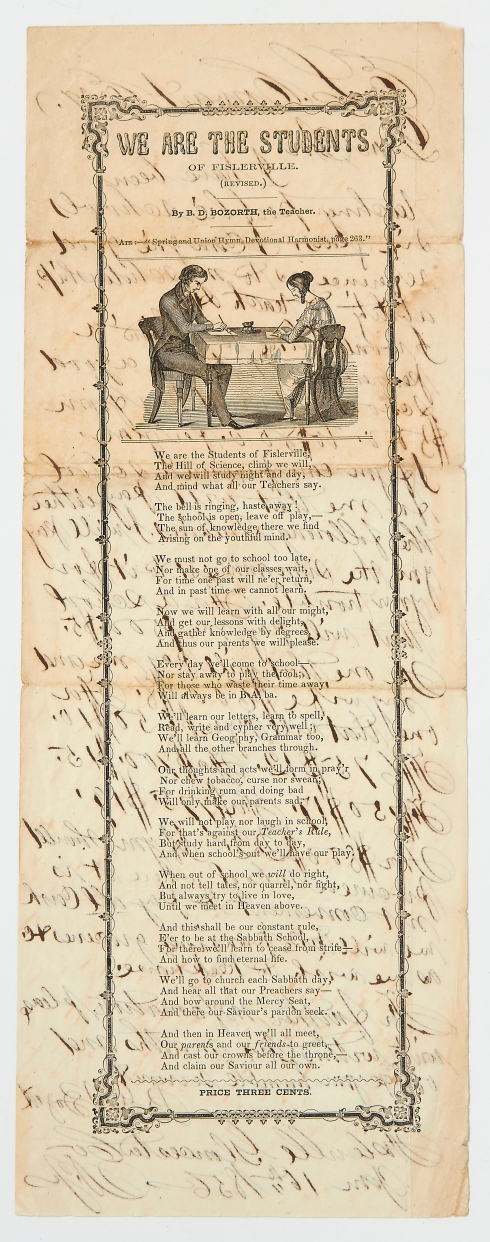
The poem is an anthem for the students of Fislerville, at the time a center of glassmaking situated between Glassboro and Vineland, wherein they pledge themselves to scholarly industry and demeanor, as well pledging good behavior:
“Our thoughts and acts we’ll form in prayer
Nor chew tobacco, curse nor swear;
For drinking rum and doing bad
Will only make our parents sad.”
On this particular copy, Bozorth has used the entire verso of the broadside to write a letter from “Fislerville, Gloucester Co., Jan. 16th 1856” to E.L. Cowart, asking for his assistance in finding a better paying teaching position, offering to pay him a commission dependent on the salary he can secure for Bozorth, and asking Cowart to contact him within six months.
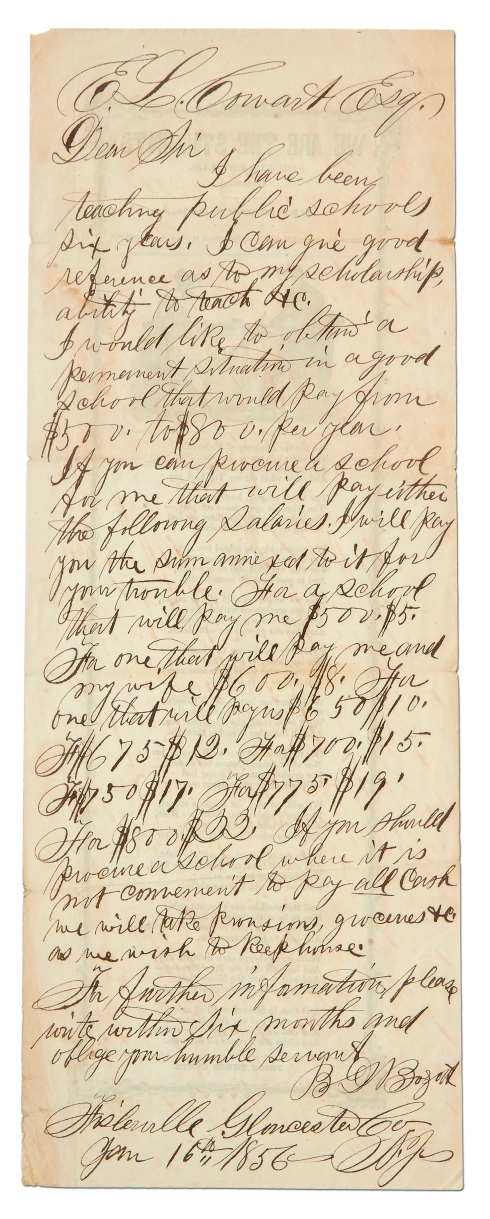 Benjamin D. Bozorth (1826-1892) spent his life as a teacher, the 1880 census found him still working as a teacher in nearby Maurice River, N.J. He died in Porchtown, N.J. in 1892. The recipient of the letter, Enoch L. Cowart was a prominent farmer and merchant in Freehold, N.J., where he owned a farm on the Revolutionary War site of the Battle of Monmouth. *OCLC* locates no copies of this broadside.
Benjamin D. Bozorth (1826-1892) spent his life as a teacher, the 1880 census found him still working as a teacher in nearby Maurice River, N.J. He died in Porchtown, N.J. in 1892. The recipient of the letter, Enoch L. Cowart was a prominent farmer and merchant in Freehold, N.J., where he owned a farm on the Revolutionary War site of the Battle of Monmouth. *OCLC* locates no copies of this broadside.
A complete description is available on our website.



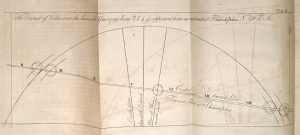
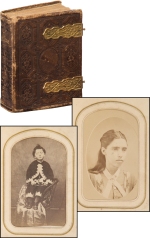
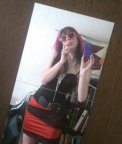
 As personal papers and archival collections are increasingly sought after by librarians and collectors, we have accordingly been conducting a fair bit of original cataloguing of various special collections materials in order to keep up with the demand. I’ve thus become better at identifying and describing the papers and ephemera of obscure authors and artists, and even a few famous punk rockers unknown only to me; but every now and then I am confronted with anonymous or original materials of considerable interest which I cannot identify, despite my best efforts. Here for example is a hand-painted illustration from the 1930s signed “AM”:
As personal papers and archival collections are increasingly sought after by librarians and collectors, we have accordingly been conducting a fair bit of original cataloguing of various special collections materials in order to keep up with the demand. I’ve thus become better at identifying and describing the papers and ephemera of obscure authors and artists, and even a few famous punk rockers unknown only to me; but every now and then I am confronted with anonymous or original materials of considerable interest which I cannot identify, despite my best efforts. Here for example is a hand-painted illustration from the 1930s signed “AM”: